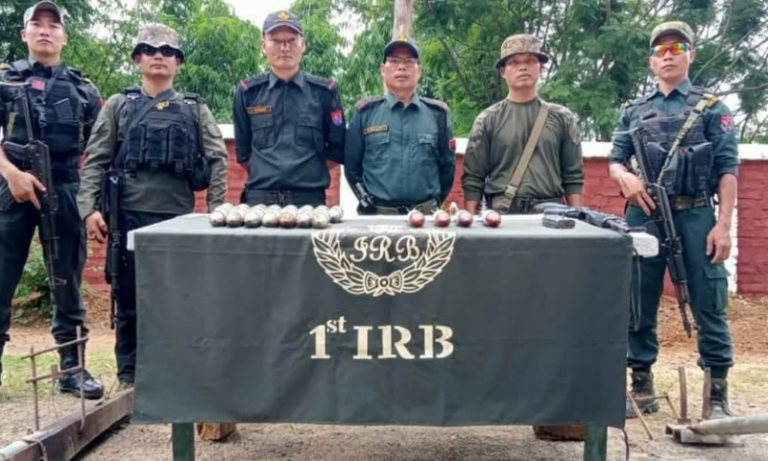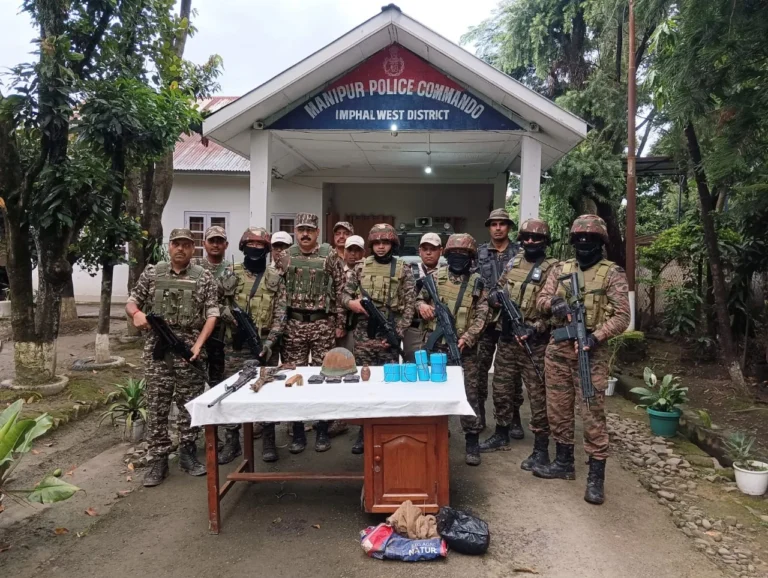Manipur High Court Directs Constitution of Ad-Hoc Committee for 38th National Games Player Selection
Summary of the News Article
The Manipur High Court has intervened to ensure a fair and transparent player selection process for the 38th National Games by directing the establishment of an ad-hoc committee. This decision comes in response to concerns over the credibility and integrity of the current selection process, reflecting the court’s commitment to upholding fairness in sports.
Ensuring Fairness in Sports: Manipur High Court’s Role in 38th National Games Player Selection
Introduction: Why This Decision is a Game-Changer
Have you ever wondered what goes on behind the scenes in player selection for major sports events? In Manipur, the upcoming 38th National Games stirred up a storm over the selection process, prompting intervention from the High Court. This move isn’t just about picking the right players; it’s about restoring faith in the system and ensuring every athlete gets a fair shot.
Let’s dive into what this decision means, how it impacts the athletes, and the larger implications for Indian sports.
The Controversy: Why the High Court Stepped In
The build-up to the 38th National Games was clouded by allegations of bias and lack of transparency in the player selection process. Athletes and stakeholders raised concerns about favoritism, which could potentially rob deserving players of their chance to shine on a national stage.
Enter the Manipur High Court, which wasted no time in addressing these grievances. By ordering the formation of an ad-hoc committee, the court sent a strong message: sportsmanship and fairness go hand in hand.
What is an Ad-Hoc Committee, and Why Is It Necessary?
An ad-hoc committee is a temporary body created to address specific issues—in this case, ensuring unbiased player selection. Think of it as a referee stepping in to ensure the game is played fairly.
Why this matters:
- Neutral Oversight: The committee brings an impartial perspective, reducing the chances of favoritism.
- Transparent Process: With clearly defined guidelines, athletes can trust the system.
- Accountability: The presence of an independent body ensures that every decision is scrutinized.
Impact on Athletes: Leveling the Playing Field
For athletes, the court’s decision is a beacon of hope. Imagine training for years only to be sidelined by unfair practices. This intervention ensures that merit, not connections, becomes the deciding factor.
Athletes can now focus on what truly matters—performing their best. This also boosts their morale, knowing that their efforts won’t go unnoticed.
Broader Implications for Indian Sports
While this decision directly impacts Manipur, its ripple effects could influence sports governance across India. Here’s how:
- Setting a Precedent: Other states may adopt similar measures to ensure fairness in their selection processes.
- Encouraging Talent Development: A transparent system motivates young athletes to pursue sports without fear of bias.
- Strengthening Public Trust: When people see fairness in action, their confidence in the system grows.
Challenges in Implementing the Ad-Hoc Committee
Of course, no solution is without hurdles. Here are some potential challenges:
- Time Constraints: With the National Games fast approaching, the committee must work swiftly.
- Consensus Building: Bringing all stakeholders on board could be tricky.
- Ensuring Compliance: Monitoring the implementation of the committee’s recommendations will require vigilance.
But as the saying goes, where there’s a will, there’s a way. The court’s directive is a step in the right direction, even if the road ahead is bumpy.
A Closer Look at the National Games
For those unfamiliar, the National Games is one of India’s premier sporting events, showcasing talent from across the country. It’s not just about winning medals; it’s about fostering unity and celebrating the spirit of sportsmanship.
Manipur has a rich history of contributing to Indian sports, with its athletes excelling in disciplines like boxing, weightlifting, and football. Hosting the 38th National Games is both an honor and a responsibility, making the selection process all the more crucial.
How the Ad-Hoc Committee Will Operate
Let’s break it down:
- Formation: The committee will include independent experts, former athletes, and legal representatives to ensure neutrality.
- Guidelines: Clear criteria for selection will be established, focusing solely on performance and merit.
- Review Process: Each candidate’s application will be thoroughly reviewed to avoid any oversights.
- Appeals Mechanism: Athletes can challenge decisions if they feel unfairly treated, ensuring accountability.
Voices from the Field: Reactions to the Decision
Athletes: Many have welcomed the move, expressing relief that fairness will now take center stage. One athlete remarked, “Finally, we have a chance to compete on equal footing.”
Coaches: While supportive, some coaches are concerned about the logistical challenges of implementing the new process.
Sports Fans: The public has largely applauded the decision, seeing it as a victory for transparency and justice.
The Road Ahead: Building a Legacy of Fairness
This isn’t just about the 38th National Games—it’s about setting a standard for the future. By ensuring that meritocracy prevails, Manipur can inspire other states to follow suit.
Here’s what needs to happen next:
- Regular Audits: Periodic reviews of the selection process can help maintain transparency.
- Grassroots Development: Identifying talent early and nurturing it ensures a steady pipeline of athletes.
- Continued Oversight: The ad-hoc committee’s principles should be integrated into permanent selection policies.
Conclusion: A Victory for Sportsmanship
The Manipur High Court’s decision to constitute an ad-hoc committee is more than a legal directive—it’s a reaffirmation of the values that make sports meaningful. For athletes, it’s a chance to prove their mettle. For fans, it’s a reminder that fairness and integrity are worth fighting for.
As we look forward to the 38th National Games, one thing is clear: the spirit of competition will be stronger, fairer, and more inspiring than ever before.
FAQs
1. What prompted the Manipur High Court to intervene in the selection process?
Concerns over bias and lack of transparency in player selection led to the court’s decision to establish an ad-hoc committee.
2. What is the role of the ad-hoc committee?
The committee ensures a fair and transparent selection process by reviewing candidates based on merit and performance.
3. How will this decision impact athletes?
It levels the playing field, giving every athlete an equal chance to be selected based on their capabilities.
4. What challenges might the ad-hoc committee face?
Key challenges include time constraints, building consensus among stakeholders, and ensuring compliance with guidelines.
5. Can this decision influence other states?
Yes, it sets a precedent for transparent sports governance, encouraging similar measures across India.


